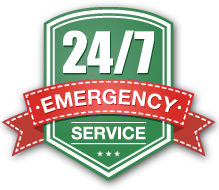
New Mexico Monsoon Season is designated from June 15th through September 30th. During the Monsoon season, New Mexico is typically impacted by hazardous weather that can cause serious injury. Extremely hot days can cause heat exhaustion and heat stroke.
HEAT EXHAUSTION: Heavy sweating, weakness, skin cold, pale and clammy. Pulse thready (scarcely perceptible). Normal temperature possible. Fainting and vomiting. First Aid: Get victim out of the sun. Lay down and loosen clothing. Apply cool, wet cloths. Fan or move victim to an air-conditioned room. Sips of water. If nausea occurs, discontinue use. If vomiting continues, seek immediate medical attention.
HEAT STROKE (or sunstroke): High body temperature (106° F. or higher). Hot dry skin. Rapid and strong pulse. Possible unconsciousness. First Aid: HEAT STROKE IS A SEVERE MEDICAL EMERGENCY. SUMMON EMERGENCY MEDICAL ASSISTANCE OR GET THE VICTIM TO A HOSPITAL IMMEDIATELY. DELAY CAN BE FATAL. Move the victim to a cooler environment Reduce body temperature with cold bath or sponging. Use extreme caution. Remove clothing, use fans, and air conditioners. If the temperature rises again, repeat the process. Do not give fluids. Persons on salt restrictive diets should consult a physician before increasing their salt intake.
How to Stay Safe During New Mexico Monsoon Season
-
Drink plenty of water. It is very easy to become dehydrated in our desert climate without realizing it.
-
Wear light, loose-fitting clothing.
-
Stay out of the sun.
-
Shift strenuous outdoor activities to cooler parts of the day, especially during the early morning.
-
Check on elderly friends, neighbors, and family often. Elders are generally more susceptible to heat-related illness.
-
Take advantage of air conditioning when possible. Many homes in New Mexico still use evaporative cooling (swamp coolers) which are much less effective during the monsoon.
-
If you, or someone you’re with, begins to feel tired and flushed and begin to sweat excessively, you may be suffering from heat exhaustion. Stop any strenuous activities immediately, drink more water, and find a cool place to rest.
Read more on the dangers of the New Mexico Monsoon Season on weather.gov



